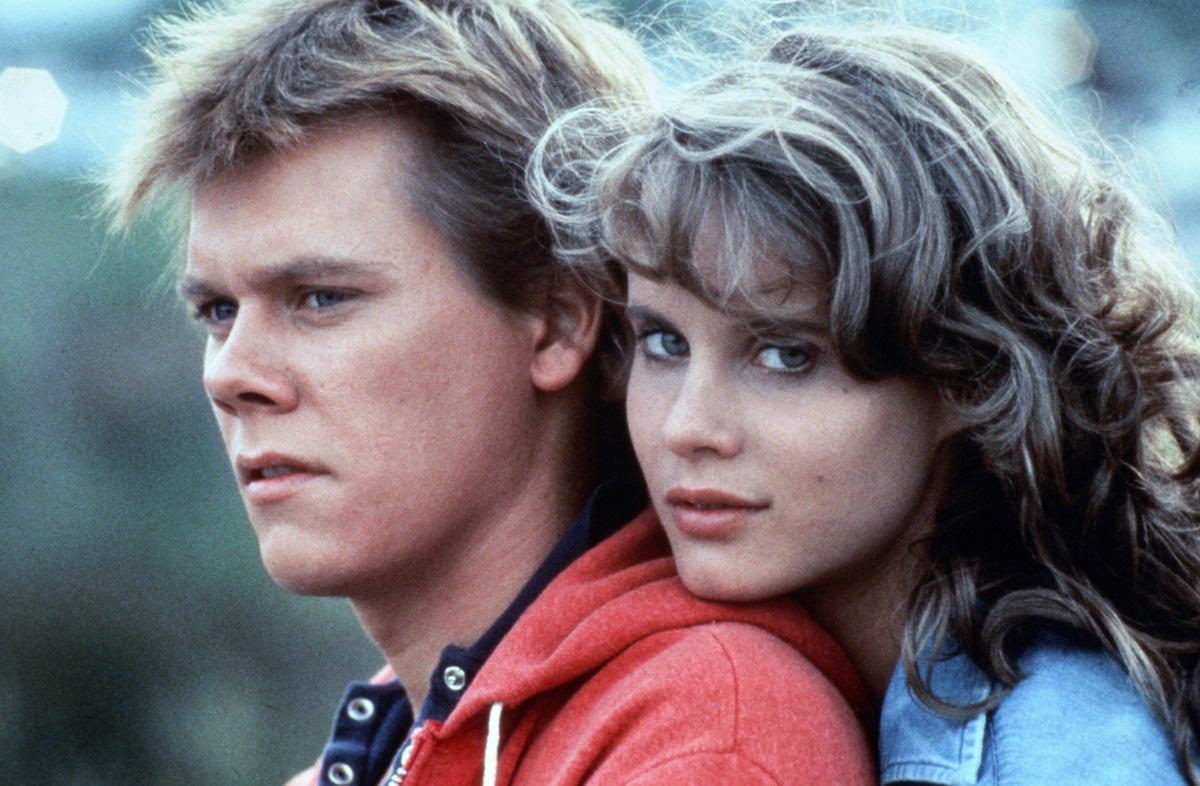People Who Want to Ban Books Should Be Required To Rewatch This Classic ’80s Film First

A lot can change in 40 years. Sadly, a lot can also stay the same. In 1984, the film Footloose premiered to middling critical reviews but quickly became a favorite among its intended audience: teenagers. It’s a fun movie with a secret nugget of truth at its center, and it’s one that modern book-burning enthusiasts should sit down and watch without delay.
In case you need a refresher, Footloose is a fish-out-of-water story about a 17-year-old named Ren McCormack (played by a then-24-year-old Kevin Bacon) who moves from Chicago to tiny Bomont, Utah with his mother (Frances Lee McCain). He’s immediately disliked by the town bullies, especially when he falls for Ariel (Lori Singer). He befriends a country boy named Willard (Chris Penn) and butts heads with Ariel’s father, the influential town minister Rev. Shaw Moore (John Lithgow).
In between tractor drag races, fights with the locals, and romancing Ariel, Ren discovers that dancing and music have been banned within Bomont’s city limits. Rev. Moore is behind the ban, which he enacted after Ariel’s brother died in a drunk driving accident. Spurred on by Ariel’s already rebellious tendencies, Ren secretly takes a group of teens to a nearby town for a night of forbidden dancing. Later, he teaches Willard to dance in one of the film’s most memorable scenes.
Everything comes to a head when a group of locals take the reverend’s restrictions to the next level by burning books they deem “sinful.” When Rev. Moore arrives at the public library he’s incensed, and immediately puts a stop to the book burning. Apparently, that’s a bridge too far, even for him. In a moment of delicious irony, the reverend admonishes the assembled crowd and asks, “When did you all decide to sit in judgment? Who elected you to be the saviors of all the souls in Bomont?”
Uhhh … PREACH! Rev. Moore goes on to tell the crowd, “Satan is not in these books,” he’s in their hearts. He has an epiphany and realizes the power of his own words and influence, and more importantly, realizes he is also inflicting his own opinions and thoughts on others against their will. Later, Rev. Moore shows that he’s had a change of heart when he asks his congregation not to stop the upcoming prom held at a nearby grain mill, but to merely pray for the safety of all who attend the dance. Progress really is a beautiful thing, isn’t it?
Based on a true story
Screenwriter Dean Pitchford wrote Footloose loosely based on the real town of Elmore City, Oklahoma, where dancing was banned from the time of its founding in 1898. According to 405 Magazine, in 1980 the high school’s junior class shook things up when they requested permission to hold a prom. In a dramatic turn of events, the school board reached a deadlocked vote of 2-2, but school board president Raymond Lee (who happens to be the father of one of the rebellious girls petitioning the town), broke the tie.
“Let ’em dance,” Lee reportedly said. Pitchford told Yahoo Entertainment that he knew this plot “seemed somewhat surreal,” even though it was grounded in truth. He included the book burning scene to send the message about personal freedom home, especially in the context of rising censorship in the 1980s. Specifically, Rev. Jerry Falwell’s “Moral Majority” Christian political action group, which aimed to ban all books and music it found offensive. Unlike in the real story, Pitchford allowed his story’s antagonist, Rev. Moore, to learn and grow during the course of the film.
“I wanted to fill all the human angles to him,” the screenwriter explained. “He inadvertently had weaponized members of his congregation. And when he saw them [burning books] in that scene, the big turnaround was him having the realization: ‘Oh, my God, my words have been turned to this.’ It begins the return to his humanity.”
Echoes of the past, 40 years later
As difficult as it is to imagine, we still face book burning and conservative Christian oppression decades after Footloose tried to teach us all a lesson about acceptance. Lawmakers in Florida and Texas continue to attempt to outlaw anything they feel is “sinful,” from books to plays, and more. Terrifying far-right groups like One Million Moms and Moms for Liberty have taken up the mantle of the Moral Majority.
Who will stand up and say, “Let ’em dance” this time? Pitchford hopes it will be all of us. “I don’t know when we’ll hit the ‘enough is enough’ button, but I’m still waiting for the climate to change,” said Pitchford. “I want people to grow weary of the hate mongers who are saying, ‘Our children are being destroyed’ and ‘Our children are being groomed by this book about a penguin who loves another penguin.’ Oh, come on.”
Times change, but some things never do! There’s always going to be someone trying to control others “for their own good.” While Footloose is a fun, frothy dance movie with a terrific soundtrack, make no mistake: its true message is about judgment, personal liberties, and rebelling against anyone determined to take away our freedom to make up our own minds.
Footloose is currently streaming on Netflix, Max, and Paramount+.
(featured image: Paramount Pictures)
Have a tip we should know? tips@themarysue.com